
~ More U.S. history titles in the Build It Yourself Series ~

Check out more titles at www.nomadpress.net
Nomad Press
A division of Nomad Communications
10 9 8 7 6 5 4 3 2 1
Copyright 2016 by Nomad Press. All rights reserved.
No part of this book may be reproduced in any form without permission in writing from the publisher, except by a reviewer who may quote brief passages in a review or for limited educational use. The trademark Nomad Press and the Nomad Press logo are trademarks of Nomad Communications, Inc.
Educational Consultant, Marla Conn
Questions regarding the ordering of this book should be addressed to
Nomad Press
2456 Christian St.
White River Junction, VT 05001
www.nomadpress.net
CONTENTS
Introduction
What Is Democracy?
Chapter 1
First Documents
Chapter 2
The Constitution of the United States
Chapter 3
Amending the Constitution
Chapter 4
Other Important Documents
Chapter 5
Important Documents of Other Nations
Chapter 6
The Future of Democracy
 Interested in Primary Sources?
Interested in Primary Sources?
Look for this icon. Use a smartphone or tablet app to scan the QR code and explore more about the U.S. Constitution and other documents! You can find a list of URLs on the Resources page.
If the QR code doesnt work, try searching the Internet with the Keyword Prompts to find other helpful sources.
U.S. Constitution 
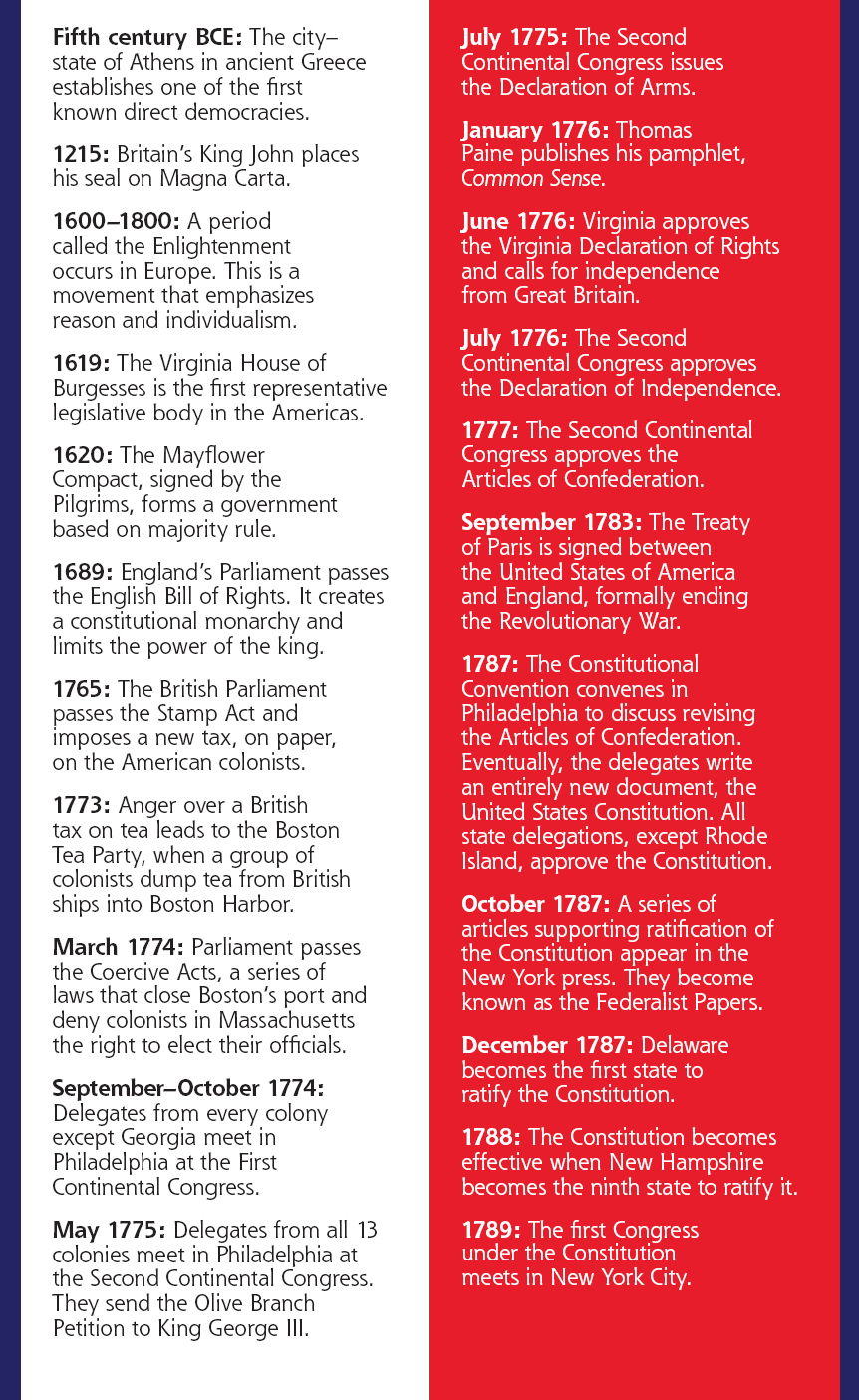
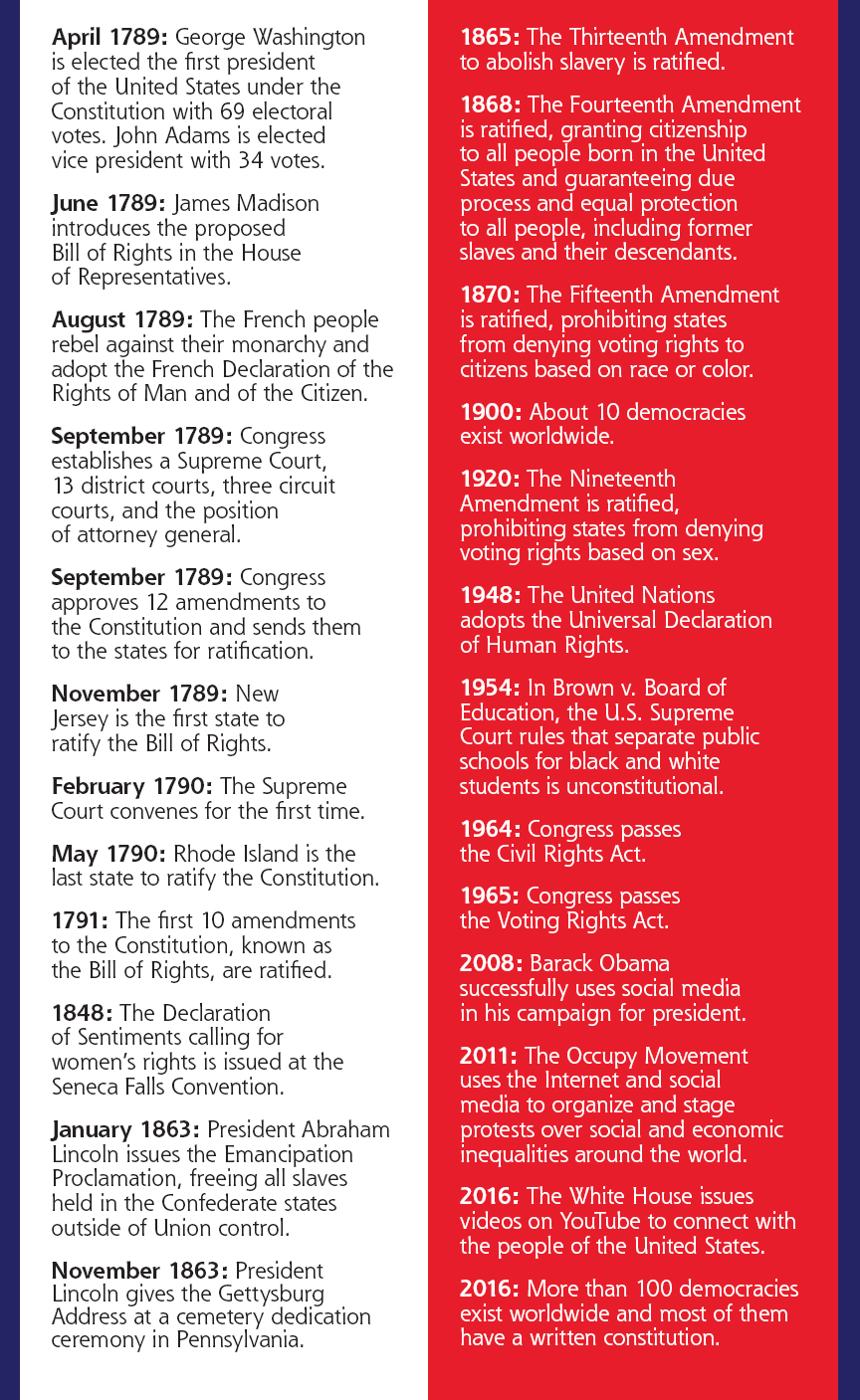
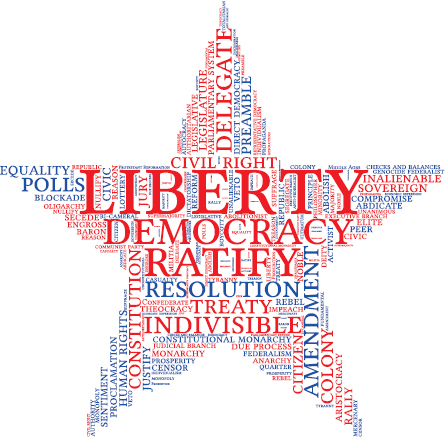
Life, liberty and the pursuit of happinessthese stirring words from the Declaration of Independence have been quoted for hundreds of years as three rights of all citizens of the United States.
Americans are known for fiercely protecting these rights and speaking out against injustice. Where did this expectation of rights come from? How does the American government protect these rights? By closely reading documents that were crafted hundreds of years ago, such as the U.S. Constitution, we find the answers to these questions and discover how American democracy works.
WHAT IS A DEMOCRACY?
A democracy is a system of government. In fact, a democracy is the most common form of government in the world. The word democracy comes from two Greek wordsdemos, which means people, and cracy, which means rule of.
Democracy is a form of government that gives power to the people. In the United States, the U.S. Constitution is the document that defines that power and the way the government is structured. Our constitutional democracy has four key elements.
A political system that allows the people to choose and replace government officials through free and fair elections. This is representative democracy . Have you ever gone to the polls with an adult on election day? You witnessed representational democracy in action!
Citizens who actively participate in politics and civic life.
Protection of the human rights of all people, not just its citizens and not just certain groups.
A government that is based on the rule of law and limited by those laws, where the laws apply equally to all.
Democracies can be direct or representative. In a direct democracy , all citizens participate in making public decisions, without elected or appointed officials. A direct democracy works best with small numbers of people. Is there a neighborhood organization where you live? It might operate as a direct democracy. In small groups, members can meet in one place to discuss issues and make decisions by a majority vote.
WORDS TO KNOW
liberty: social and political freedoms enjoyed by people.
democracy: a system of government where the people have the ultimate power to govern themselves and determine how they will be governed.
representative democracy: a form of democracy where elected officials govern.
polls: a survey (or count) of peoples positions on issues or candidates for elected office, or a place where that survey (or count) takes place.
civic: relating to duty and responsibility to community.
human rights: the rights that belong to all people, such as freedom from torture, the right to live, and freedom from slavery.
citizen: a person who has all the rights and responsibilities that come with being a full member of a country.
direct democracy: a form of democracy where all citizens participate in decision making.
The worlds first democracy, Athens in ancient Greece, was a direct democracy. Assemblies with as many as 5,000 to 6,000 people gathered to practice direct democracy.
What would it look like if every citizen of the United States had to meet every time a law needed to be voted on?
In many communities, the population is too large or spread out for all to gather in a single location to vote or discuss issues. As a result, the most common form of democracy is a representative democracy.
In this form of democracy, the people elect officials to make political decisions, create laws, and administer public programs for them. This group of officials is a manageable size that meets to discuss issues in depth before they vote. They hold office in the name of the people. If the people are not satisfied with their elected officials, they can vote them out of office and replace them with new officials.

A HISTORY OF DEMOCRACY
Democracy began long before the United States was a country. Its useful to learn about the history of democracy to understand how the system works today.
The citystate of Athens in ancient Greece, which existed around the fifth and sixth centuries BCE , was one of the first known direct democracies. The main political institution in Athens was called the Assembly. A ruling council of 500 citizens were chosen by lottery and served a one-year term. The council proposed policies that were voted on by the citizens of Athens. The Assembly conducted trials in which juries decided guilt or innocence by a majority vote.
In ancient Greece, membership in the Assembly and voting rights were limited to adult men.
Women, slaves, and foreigners were not allowed to vote. In some Greek city states, only male property owners were eligible to vote. In this way, the early Greek model was a limited democracy, because not all of the people could participate. Still, the Greek citystates served as models for future democracies.
The Middle Ages began a period in which most European countries were ruled by a king or queen. Many people believed that the power of the king came directly from God!
Next page
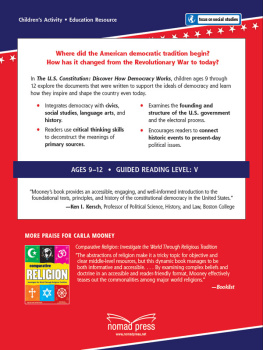
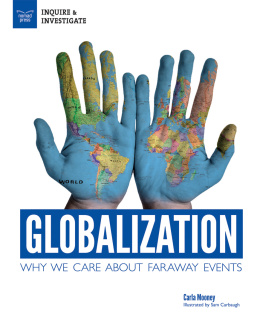
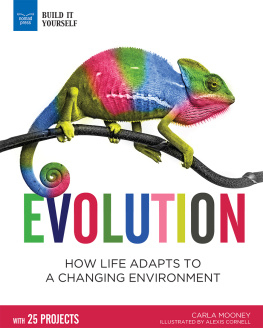
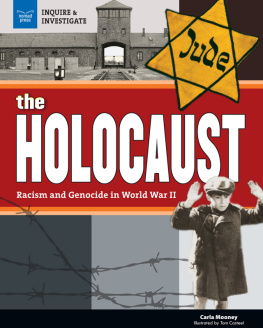

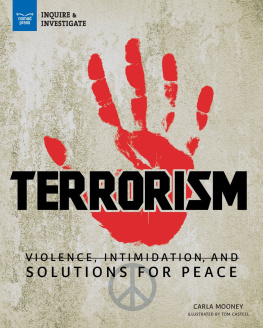
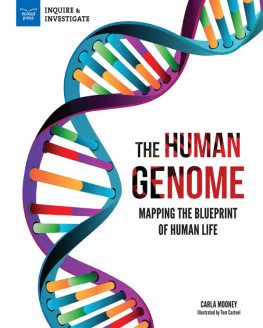
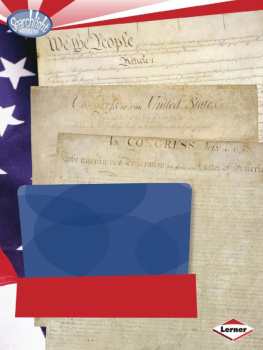
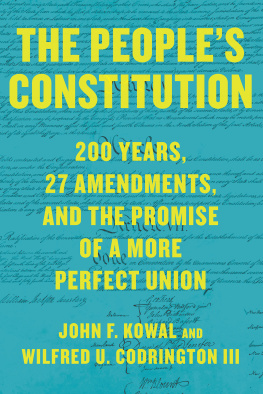
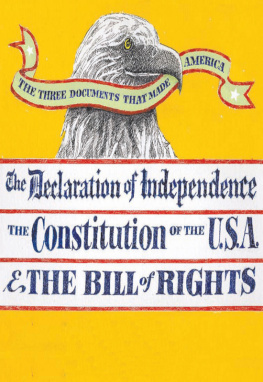
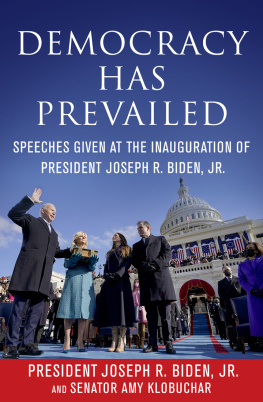

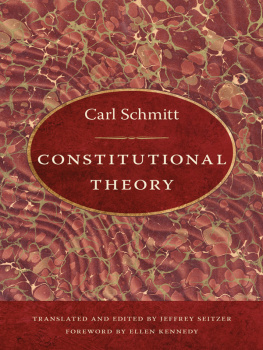
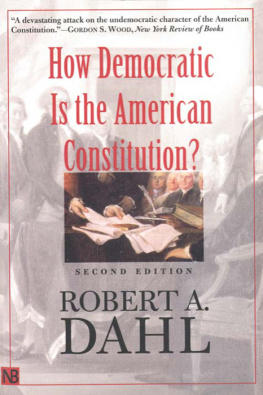
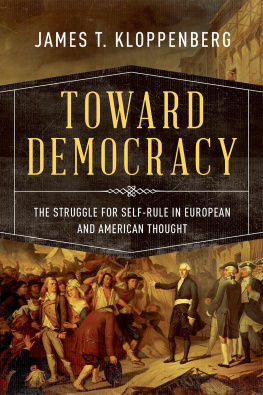
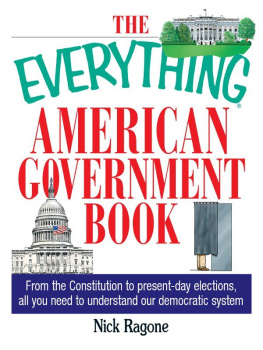
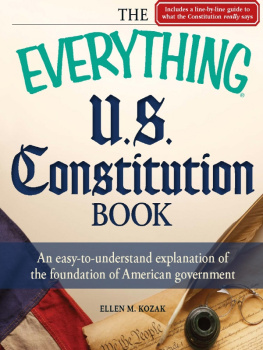


 Interested in Primary Sources?
Interested in Primary Sources?



